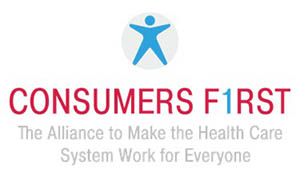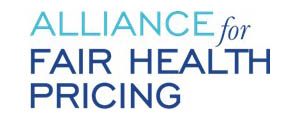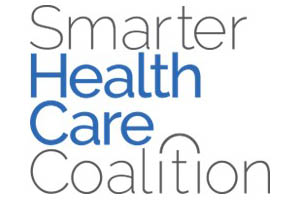Coalitions and Partnerships
As the nation’s largest organization representing major employer plan sponsors and others exclusively on benefits matters, the American Benefits Council is committed to collective action, both within our membership and in partnership with others.
In addition to our own direct advocacy work — which includes our own internal task forces and coalitions — the Council also either leads or actively participates in several issue-specific coalitions. Distinguishing us within the business community is our commitment to organizing coalitions of diverse stakeholders. By finding common ground on select issues with organizations with whom we sometimes have differing views on other matters, we demonstrate to lawmakers and regulators the importance of the issues we are jointly advocating, for maximum effectiveness.
Click on the coalition name below for more details.
Alliance to Fight for Health Care (“the Alliance”)
https://www.fightforhealthcare.com/
Mission: Promote and advance employer-provided health care coverage
In 2015 the Council established the Alliance to Fight the 40, a broad-based coalition comprised of businesses, patient advocates, unions, health care companies, consumer groups and other stakeholders that led the successful effort to fully and permanently repeal the so-called 40% “Cadillac Tax” on employer-sponsored health coverage.
Coalition members recognized the significant potential of continued alignment of diverse stakeholders and rebranded as the Alliance to Fight for Health Care to take on other health policy challenges. The Alliance is focused on advancing policies to reduce health care costs, including addressing market failures that result in anti-competitive contracting practices, ensuring equitable reimbursement regardless of the site of care, and partnering more strategically with the federal government to implement uniform quality measurement across payers and providers. The Alliance played a pivotal role in extending the ability of telehealth to be provided on a pre-deductible basis and is working to make that provision of law permanent as well as enhance access to mental health services.

Better Solutions for Healthcare
https://bettersolutionsforhealthcare.org/
Mission: Bring together employers, consumers, and taxpayers to educate lawmakers on the rising cost of health care and provide ideas on collaborate efforts to find better solutions that lower health care costs.
The Council has partnered with other organizations representing private and public employers along with health care stakeholders to highlight rising hospital costs and identify better solutions. Specifically, the coalition is working to advance legislation to harmonize billing practices in off-campus hospital outpatient facilities, end certain hospital systems’ billing practices and promote health system competition. The coalition promotes grassroots advocacy and urges members of Congress to cosponsor legislation endorsed by Better Solutions for Healthcare.

Coalition Against Surprise Medical Billing (CASMB)
https://stopsurprisebillingnow.com/
Mission: Support solutions to end surprise medical billing
The Council helped lead the successful coalition effort in 2020 to end surprise billing with passage of the No Surprises Act. CASMB includes organizations representing employers, health plans, unions, and others focused on protecting patients from surprise bills. Coalition efforts continue as the regulatory process is finalized to implement the new law. In a related development, the Council is coordinating a multi-stakeholder effort to defend the law and regulations in the courts in response to lawsuits that have been filed challenging the interim final regulations to implement the No Surprises Act.

Consumers First
https://familiesusa.org/our-work/consumers-first/
Mission: Realign the incentives and design of health care so the system delivers high-quality care
The Council serves on the steering committee of Consumers First, a diverse coalition of consumers, employers, labor unions, children’s advocates and primary care providers. The coalition, led by the consumer organization Families USA, focuses on policy proposals to lower health care costs in six core policy areas: (1) distortions in prescription drug prices, (2) distortions created by payment systems like Medicare, (3) increased health care industry consolidation, (4) inadequate access to data and lack of transparency, (5) flawed health care workforce policy, and (6) federal tax policy for nonprofit health care institutions and insurance plans.
The Council was a leader in successfully advocating to the Centers for Medicare and Medicaid Services for increased penalties on hospitals that do not comply with new transparency rules. A top legislative goal of Consumers First is enacting S. 3139, the Healthy Competition for Better Care Act, a bipartisan bill aimed at limiting anti-competitive contracting practices that inhibit value-based plan designs and payment reforms.

Data Equity Coalition
https://dataequitycoalition.com/
Mission: Develop policy solutions that advocate for race, ethnicity, language, sexual orientation and gender identification standards in support of health outcomes.
The Council has partnered with the National Minority Quality Forum, the Blue Cross Blue Shield Association and patient, consumer and social change constituency organizations to address health equity challenges through inclusive data collection. The coalition is committed to improving health outcomes through more accurate and more representative data on race, ethnicity, language, sexual orientation and gender identification. Developing a standardized approach to data can be critical to ensuring equal opportunity to the highest level of health. The Council’s participation in the Coalition builds on its partnership with the Urban Institute and the Deloitte Health Equity Institute on a report, supported by Elevance Health, to examine one of the most significant barriers to health equity: incomplete and inconsistent collection and sharing of race and ethnicity data.

Alliance for Fair Health Pricing
https://allianceforfairhealthpricing.org/
Mission: Create a more accessible, affordable, equitable and sustainable health care system for all Americans. The aim is to educate concerned citizens and decision makers about how health care prices are set and to lay out paths toward common-sense solutions to lower prices.
This coalition includes health care consumers, employers and doctors. Through collective efforts, it seeks to raise awareness about the primary drivers of rising health care prices and advance policies that will make care more affordable. The coalition highlighted the reasons behind rising costs with the release of its report, Health Care Consolidation: Background, Consequences, and Policy Levers. It reveals how hospital consolidation and lack of market competition increases prices, affecting health care costs, wages, economic growth and the health services accessibility and affordability.

Smarter Health Care Coalition (SHCC)
Mission: Achieve Improve the patient experience through innovative benefit designs that better align coverage, quality, and value-based payment goals.
The Council was an early member of the SHCC, created in 2015, which is comprised of diverse stakeholders focused on increasing adoption and deployment of value-based payment reform and value-based benefit designs. With the Council’s active engagement, SHCC championed recent guidance issued by the U.S. Treasury Department and Internal Revenue Service to allow high-deductible health plans coupled with Health Savings Accounts to cover certain chronic disease prevention drugs and services on a pre-deductible basis. Recent data have shown between 75-80% of surveyed employers and health plans made changes to benefit designs to utilize the guidance and offer more chronic disease prevention on a pre-deductible basis. SHCC is also dedicated to decreasing the provision of low-value care services. Katy Spangler, the Council’s senior advisor, health policy, is one of the coalition’s co-directors.

Core Quality Measures Collaborative (CQMC)
https://www.qualityforum.org/cqmc/
Mission: Recommend core sets of measures by clinical area to assess the quality of health care.
Quality measurement is increasingly vital as the U.S. health care system moves from paying for volume to paying for value. This collaborative is made up of the Centers for Medicare and Medicaid Services, health insurance providers, medical associations, consumer groups, purchasers (including employer group representatives), and other quality collaboratives.

Retirement Savings Network (RSN)
Mission: Share information and collaborate on proposals to advance retirement savings.
The Council is a founding member of the RSN, which has been in existence for over 15 years. This coalition of trade associations shares information on retirement plan legislative and regulatory developments and provides technical comments to Congress and regulatory agencies. RSN members frequently collaborate on the importance and value of the private voluntary employer-based retirement system, recommendations for maintaining a strong retirement system and ways to strengthen the current system, including increasing access to, and the adequacy of, retirement savings. Recent legislative and regulatory activity includes efforts on the , addressing the proliferation of baseless retirement plan litigation, missing participant issues, pension risk transfers, use of qualified professional asset managers, prohibited transaction exemption process, environmental, social, and governmental investments (ESGs), use of brokerage windows and SECURE 2.0 implementation including catch-up contributions, emergency savings programs, student loan repayments, recoupments, inadvertent errors, long-term parttime eligibility and many other issues.

